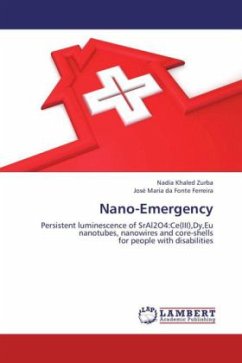This book comprises chapters on luminescent nanomaterial synthesis and characterization, as well as on some important aspects of their visual personalization and application in emergency signalling for accessibility in darkness. Our work reports the luminescente strontium aluminate nanotube growth obtained by solid-state reaction of precursors and post-annealing at temperature ranging 573-1473 K up to phase transformation. This new optical nanotubular structure was characterized by HR-TEM, SEM, AFM, EDX, steady-state and time-resolved PL spectroscopy. Afterglow phenomenon was performed in strontium aluminate polymorphs. A series of f-f and f-d-transitions with light emission in structured bands peaked at 488 nm arising from the polymorphism of host lattice were correlated to an intercrystalline distal-effect on the afterglow phenomenon, elucidating an old concept for the alterations from the phosphorescence to the fluorescence in post-annealed conditions. The contributors includescientists, doctors and professors who have participated in some inventions and publications during the doctoral course, and are here referenced.
Bitte wählen Sie Ihr Anliegen aus.
Rechnungen
Retourenschein anfordern
Bestellstatus
Storno








